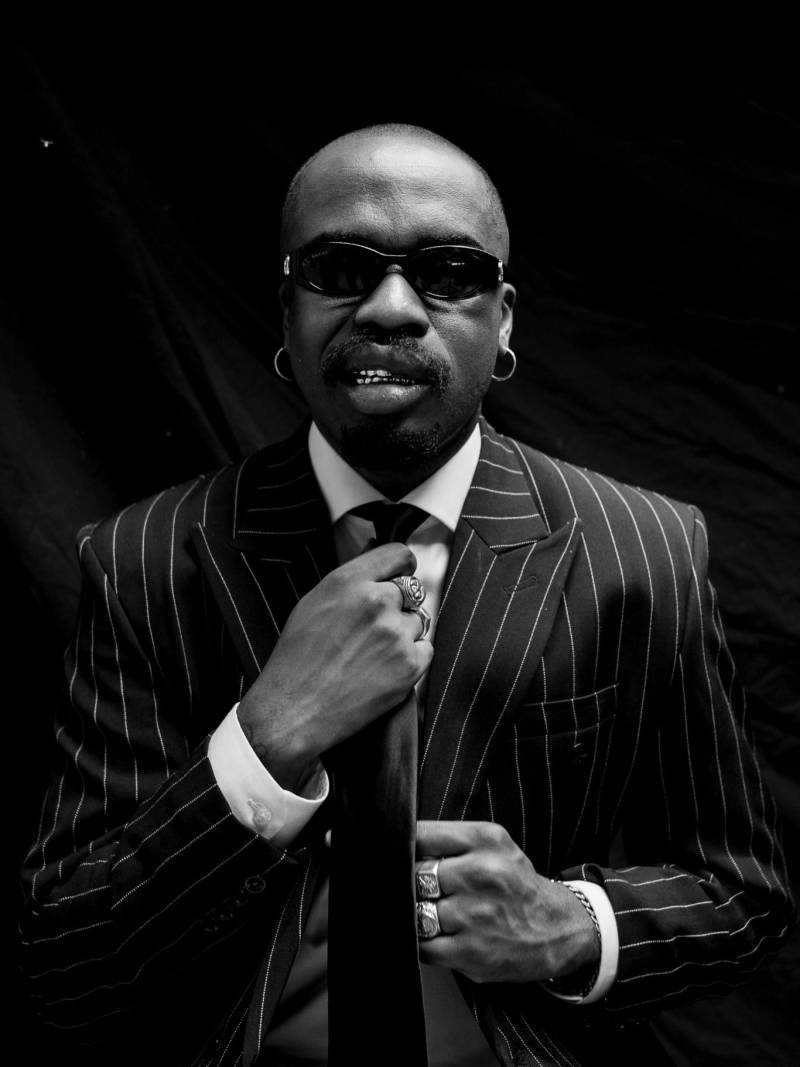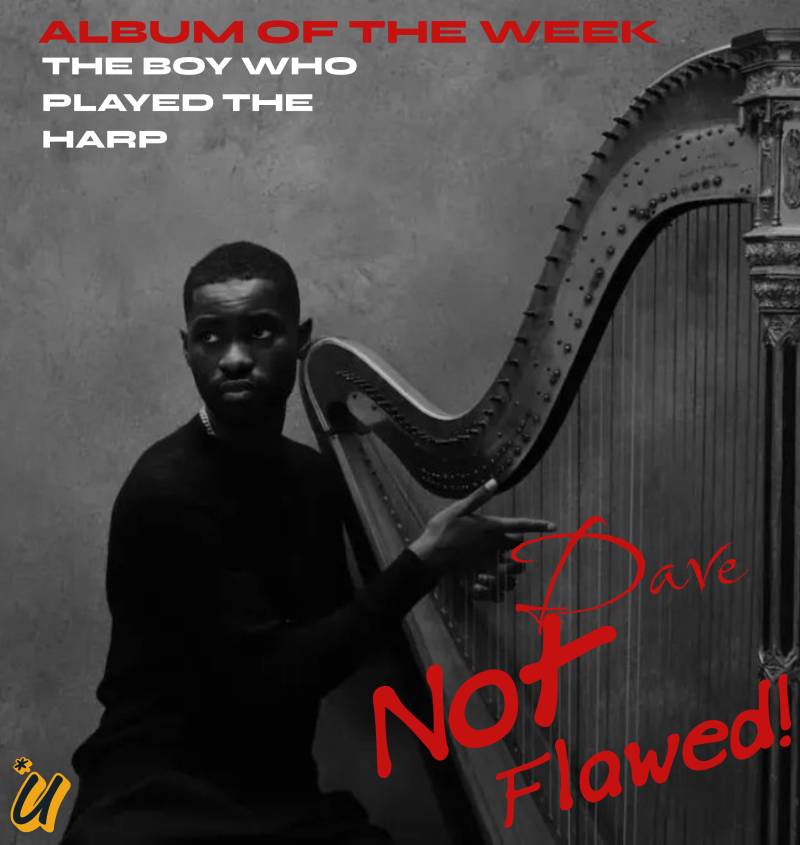From the dusty streets of Bariga to the bright lights of global stages, Olamide Adedeji, fondly called Olamide Baddo, embodies the unfiltered grit and grace of Lagos. His story isn’t one of overnight success. It’s a narrative carefully carved in layers: street hustle, cultural disruption, and, ultimately, industry domination. Raised in the heart of Bariga, where life teaches survival before ambition, Olamide transformed everyday struggle into art, turning local slang into national anthems and street beats into timeless hits.
Olamide didn’t just rise from Lagos; he carried Lagos with him. His breakout single “Eni Duro” wasn’t just a song; it was a statement, brash, unapologetic, and proudly Yoruba. While many rappers leaned toward English, trying to fit into the global mold, Olamide embraced his roots, making the streets not just his story but his brand. His debut album Rapsodi was a blueprint of this authenticity: a raw, unpolished yet undeniable showcase of talent that couldn’t be ignored.
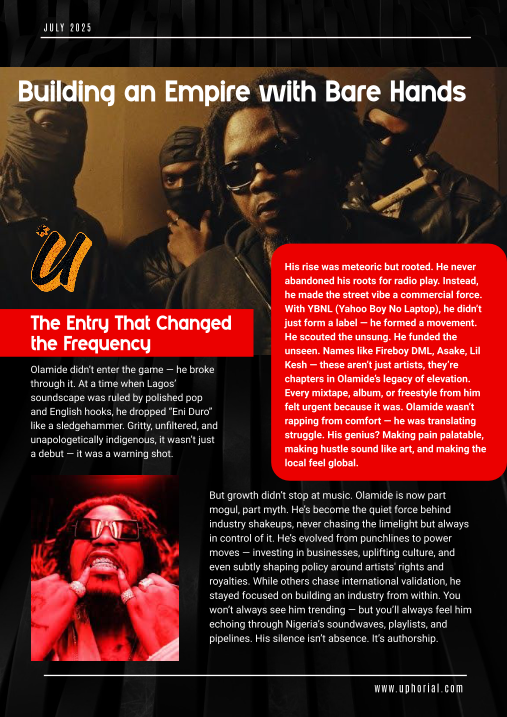
Related article - Uphorial Podcast
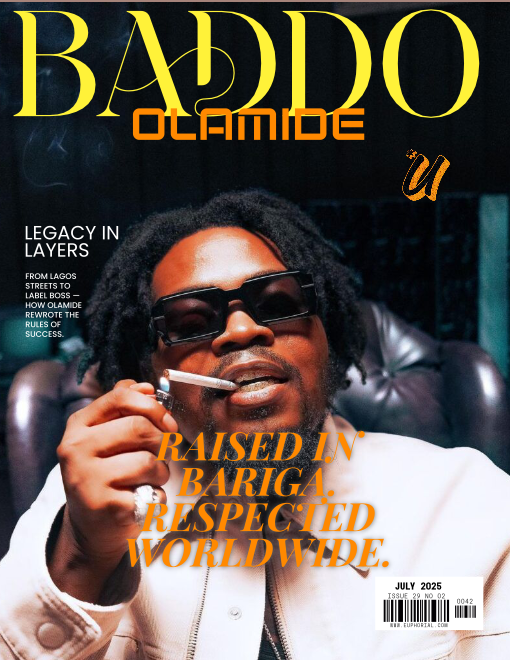
Related article - Uphorial Sweatshirt
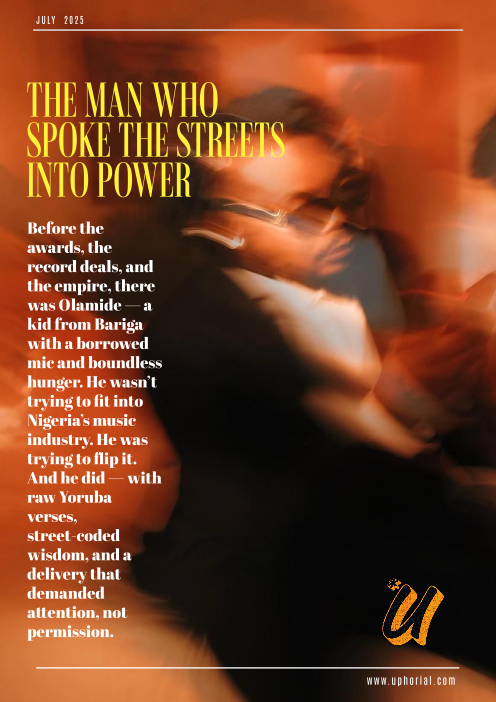
"INTERESTED IN THE HARDCOPY OF THE MAGAZINE - WhatsApp 346-200-7279 TEXT ONLY"
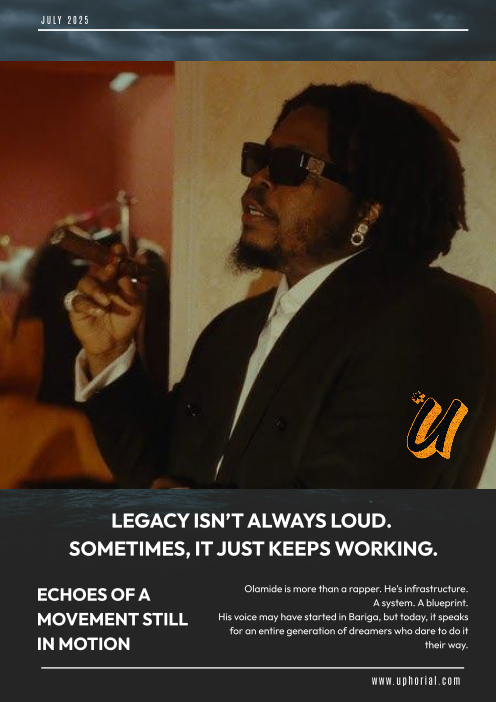
But where most would have stopped at being a local champion, Olamide saw beyond Bariga. He understood that music wasn’t just art; it was business. His second album, YBNL (Yahoo Boy No Laptop), didn’t just drop songs; it launched a movement. The title alone sparked conversations, establishing his image as the street-smart hustler who played the game his way. Songs like “First of All” and “Voice of the Street” captured the pulse of Nigerian youth, blending street credibility with mass appeal. Yet, the most fascinating layer of Olamide’s legacy isn’t his hit singles or viral slangs; it’s his transition from artist to mogul. Founding YBNL Nation, he became the very system he once disrupted. He didn't just break doors down; he built new ones for others to walk through. Under his mentorship, talents like Lil Kesh, Fireboy DML, and Asake have flourished, reshaping the Afrobeats and street-hop soundscape. In a scene often obsessed with individual success, Olamide chose to multiply his influence through others.
Olamide’s growth also mirrors the evolution of Lagos itself: chaotic yet creative, gritty yet glamorous. Even as his sound shifted from hardcore rap to more commercially palatable Afrobeats and Amapiano-infused rhythms, his authenticity remained untouched. Whether on street anthems or love ballads, you still hear Bariga in his voice. He didn’t abandon his roots to chase global relevance; he simply invited the world to experience them. Today, Olamide stands not just as a music icon but as a cultural blueprint. His story teaches that success doesn’t require abandoning where you come from. It teaches that influence isn’t measured just in awards but in impact, in how many lives you touch, how many doors you open.
His latest project, Ikigai, is a reflection of this maturity. The album doesn’t scream for attention; it’s a quiet confidence, the sound of a man who no longer needs to prove himself. Collaborating with both old colleagues and new voices, Olamide weaves a narrative that feels both nostalgic and forward-thinking. Like Lagos itself, he’s never stagnant, always evolving, yet always Olamide. Raised in Bariga, respected worldwide, Olamide Baddo didn’t just climb the ladder of success; he rebuilt it, piece by piece, with each song, each artist signed, each risk taken. His legacy isn’t just in music charts; it’s layered in the lives he’s changed and the industry he’s reshaped. From the streets to the boardrooms, Olamide’s story remains one of Africa’s most profound lessons in resilience, reinvention, and realness.
